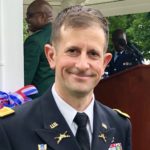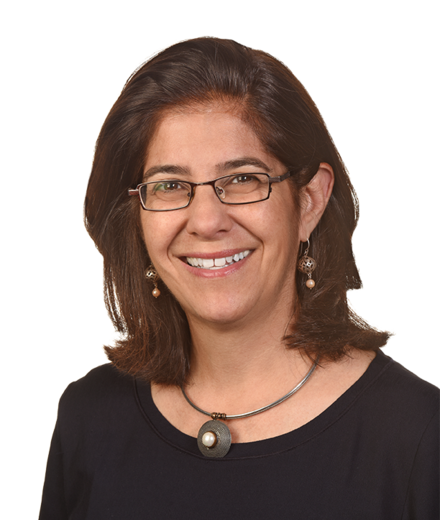Tuesday, June 15th 2021 – Charles A. Kupchan

Topic: From Trump to Biden: Navigating Isolationist and Internationalist Traditions in U.S. Statecraft
Charles Kupchan is a senior fellow at the Council on Foreign Relations and professor of international affairs at Georgetown University in the Walsh School of Foreign Service and Department of Government. He is the author of 10 books on international relations and geopolitics and a frequent contributor to magazines and journals in the field.
From 2014 to 2017, Kupchan served as special assistant to the president and senior director for European affairs on the staff of the National Security Council (NSC) in the Barack Obama administration. He was also director for European affairs on the NSC during the first Bill Clinton administration. Before joining the Clinton NSC, he worked in the U.S. Department of State on the policy planning staff. Previously, he was an assistant professor of politics at Princeton University. Kupchan received his BA from Harvard University and MPhil and DPhil from Oxford University.
Tuesday, May 4th 2021 – Ambassador Terry Branstad

Topic: Diplomatic Relations with China
Terry Branstad is the longest serving governor in the history of the United States, having stood at the helm of Iowa’s executive branch for over 20 years. In 2016 he relinquished his post to accept President Donald Trump’s nomination as United States Ambassador to China. President Trump cited Branstad’s extensive experience in public policy, trade and agriculture, and his personal friendship with Chinese President Xi Jinping, who Branstad has known since the 1980’s, as reasons for this choice. Ambassador Branstad stepped down from his role in China in 2020 as the COVID-19 pandemic began to worsen.
During Mr. Branstad’s time as ambassador, the United States took a much more hardline approach to China’s geopolitical aggression and anti-democratic actions. Beginning in 2018, a flurry of tariffs on both sides instigated a trade war. Increasingly harsh rhetoric revealed the Trump administration’s determination that a rising China could not establish wider, more illiberal spheres of influence. Ambassador Branstad had unparalleled access to the conflict that unfolded between the world’s two superpowers, and we hope you’ll join us on Tuesday to hear it from his perspective.
Tuesday, April 20th, 2021 – Dr. William Hill and Colonel Jason P. Gresh


Topic: Russia and NATO: Past, Present, and Future.
In March 2014 Russia formally annexed the Republic of Crimea and incorporated it as a subject state, an act of aggression that ended civilian and military cooperation between Russia and NATO. Hostility from the Russians has increased again in recent weeks in the Donbass region of Ukraine, as Russia has massed troops along the disputed border. Ukraine’s president has stated that he views Ukrainian membership in NATO as the only way to ameliorate the crisis in the region, a development strongly opposed by Russian authorities. Is Russia seeking to once again flout international norms and add to its territory? What are the historical roots of this conflict and of NATO’s involvement? What does the current situation look like on the ground, and what are the prospects for peace in the region?
To answer these questions and many more, we will be joined by two experts from the Kennan Institute.
Dr. William H. Hill is a retired foreign service officer who served two terms as Head of the OSCE Mission to Moldova, where he was charged with negotiation of a political settlement to the Transdniestrian conflict and facilitation of the withdrawal of Russian forces, arms, and ammunition from Moldova. Dr. Hill is an expert on Russia and east-west relations, having authored several books on the subject, and will provide us with the historical context that surrounds the current conflict.
Colonel Jason P. Gresh was a U.S. Army Foreign Area Officer (FAO) fellow with the Kennan Institute. He was also previously a military fellow at the Center for Strategic and International Studies and has been serving as a FAO specializing in Eastern Europe and Eurasia for most of his Army career. Colonel Gresh holds a M.A. in Russian and East European Studies from Georgetown University and a B.S. in Civil Engineering from the United States Military Academy at West Point. He is currently in Moscow serving as the army attaché to the US embassy.
Tuesday, March 16th, 2021 – Jason Marczak

Current affairs in Latin America.
Jason Marczak is the director of the Atlantic Council’s Latin America Center, which seeks to promote a stronger partnership between Latin America, the United States, and Europe based on shared values and common strategic interests. Marczak holds a bachelor’s degree from Tufts University and a master’s degree in international affairs and economics from the Johns Hopkins University Paul Nitze School of Advanced International Studies. He has over twenty years of expertise in regional economics, politics, and development, working with high-level policymakers and private-sector leaders to shape public policy. Since taking over as the director of the Latin America Center, among other priorities, he has overseen development of a multi-faceted campaign focused on a reconstruction of Venezuela’s democratic institutions, and most recently, has led the center in its new efforts to map a post-COVID recovery for the region.
In addition, since 2016, Marczak has been an adjunct professor at The George Washington University’s Elliot School of International Affairs. He frequently provides English-and-Spanish language commentary on political and economic issues in Latin America with appearances in hundreds of US and regional press outlets. He is a frequent op-ed contributor to major media outlets, a sought-after speaker, and has testified before the US Congress on key regional developments.
Tuesday, February 16th, 2021 – Dr. Aparna Pande

The Future of India on the World Stage
India will be the world’s most populous country by 2024 and its third largest economy by 2028. But the size of the population and a sense of historical greatness alone are insufficient to guarantee that India will fulfil its ambition to become a global power. India’s approach to realize this vision needs more than just planning for economic growth. It requires a shift in attitudes. This presentation examined the challenges that India faces in the areas of social, economic, military and foreign policy and strategy. There is a dichotomy that lies at the heart of the nation: India’s belief in becoming a global power and the reluctance to implement policies and take actions that would help it achieve that goal.
Dr. Aparna Pande is Director of the Initiative on the Future of India and South Asia at the Hudson Institute, Washington D.C. Her major field of interest is South Asia with a special focus on India, Pakistan, Afghanistan, Foreign and Security Policy.
Born in India, Pande received her Bachelor’s and Master’s degrees in History from St. Stephens College at Delhi University before receiving an M. Phil in International Relations from Jawaharlal Nehru University. She completed her Ph.D. in Political Science at Boston University in the United States.
Aparna Pande’s books include ‘Making India Great: The Promise of a Reluctant Global Power’ (Harper Collins, 2020), ‘From Chanakya to Modi: The Evolution of India’s Foreign Policy’ (Harper Collins, 2017), ‘Explaining Pakistan’s Foreign Policy: Escaping India’ (Routledge, 2010) and ‘Contemporary Handbook on Pakistan’ (as editor) (Routledge, 2017).
Tuesday, January 29th, 2021 – Raphael Cohen

The Future of Warfare and Its Implications for U.S. Defense Policy
Raphael “Rafi” Cohen is the associate director of the Strategy and Doctrine Program of RAND Project AIR FORCE, and a senior political scientist at the RAND Corporation. He works on a broad range of defense and foreign policy issues, including defense strategy and force planning, Middle East and European security and civil-military relations.
Cohen previously held research fellowships at the Brookings Institution, the American Enterprise Institute and the National Defense University’s Center for Complex Operations. He has written for a variety of forums, including the Journal of Strategic Studies, Foreign Affairs, The Washington Quarterly, Orbis, Fox News, War on the Rocks, Lawfare, The National Interest and other publications. He also served as a staffer on the Congressionally-appointed 2018 National Defense Strategy Commission.
A military intelligence branched lieutenant colonel in the Army Reserve, Cohen has held a variety of command and staff positions in both the active and reserve components, including during two combat tours in Iraq from 2005 to 2006 and again from 2007 to 2008. He holds a B.A. magna cum laude in government from Harvard University and an M.A. in security studies and Ph.D. in government from Georgetown University.
Tuesday, November 10th, 2020 – Judd Devermont

Great Power Competition: How does the U.S.’ Africa policy measure up to China/Russia
Judd Devermont is the director of the Africa Program at the Center for Strategic and International Studies (CSIS). Prior to joining CSIS, he served as the national intelligence officer for Africa from 2015 to 2018. In this position, he led the U.S. intelligence community’s analytic efforts on sub-Saharan African issues and served as the DNI’s personal representative at interagency policy meetings. From 2013 to 2015, he was the Central Intelligence Agency’s senior political analyst on sub-Saharan Africa. Mr. Devermont also served as the National Security Council director for Somalia, Nigeria, the Sahel, and the African Union from 2011 to 2013. In this role, he contributed to the U.S. Strategy Toward Sub-Saharan Africa, signed by President Obama in 2012, and managed the process that resulted in U.S. recognition of the Somali government for the first time since 1991. Mr. Devermont spent two years abroad working at the U.S. Embassy in Abuja, Nigeria from 2008 to 2010.
Mr. Devermont is a lecturer at George Washington University’s Elliot School of International Affairs where he co-teaches a class on U.S. intelligence analysis on sub-Saharan Africa. He is also a senior adviser at Kupanda Capital, a pan-African investment platform, and at Fraym, a data analytics firm. Mr. Devermont is a frequent commentator in print, on radio, and on television, and he has testified before Congress. He has published articles in a range of journals, such as Foreign Affairs and African Affairs, as well as newspapers and magazines like Bloomberg, the Hill, Lawfare, and Mail & Guardian in South Africa. In addition, Mr. Devermont hosts Into Africa, a biweekly podcast series on African politics and policy. The views expressed in publications authored by Mr. Devermont do not represent those of the U.S. government. Mr. Devermont has lived in South Africa and Cote d’Ivoire, and he has traveled widely across the continent. He has a master’s degree in African studies from Yale University and bachelor’s degree in history from the University of California, Los Angeles.
Tuesday, October 13th, 2020 – Jennifer Staats

China – its role and politics, both regionally and globally
Jennifer Staats is the director of East and Southeast Asia Programs at the U.S. Institute of Peace. She joined USIP in 2016 as the director of the China Program, and she continues to lead USIP’s work on China and its impact on peace and security around the world. She also oversees USIP’s field office in Myanmar, as well as the Institute’s work on Northeast Asia, Southeast Asia, and Oceania.
Dr. Staats previously spent several years working in the Office of the Secretary of Defense, where she concentrated on policy issues related to Asia. At the Pentagon, she led the teams that coordinated the Department of Defense’s implementation of the U.S. Rebalance to the Asia-Pacific and developed long-term strategies for the Department. She also served as a director in the Cyber Policy Office and managed the Asian-Pacific Security Affairs portfolio for the Assistant Secretary of Defense for Legislative Affairs. Staats received several awards for her work at DoD, including the Defense Medal for Exceptional Civilian Service.
Before entering government service, Staats was a fellow with the International Security Program at Harvard’s Belfer Center and a research assistant with the Preventive Defense Project chaired by Ashton B. Carter and William J. Perry. She has also lived, worked, and studied in both China and Germany.
Staats received her doctoral degree from Harvard University, her master’s from Princeton University, and her bachelor’s from the University of the South (Sewanee). She has been named a Council on Foreign Relations term member, Fulbright Scholar, NSEP Boren Fellow, Javits Fellow, Rosenthal Fellow, NCAA Postgraduate Scholar, and Public Intellectuals Program Fellow and member of the National Committee on U.S.-China Relations.

Tuesday, September 15th, 2020 – Mona Yacoubian
Syria, Iraq (post-ISIS), Lebanon and COVID impacts on these areas
Ms. Yacoubian’s work centers on conflict analysis and prevention in the Middle East, with a specific focus on Syria, Iraq, and Lebanon. In 2019, she served as executive director of the Congressionally-appointed Syria Study Group, which USIP was mandated to facilitate. Additional research interests include violent extremism, fragility and resilience.
Mona Yacoubian joined the U.S. Institute of Peace after serving as deputy assistant administrator in the Middle East Bureau at USAID from 2014 to 2017, where she had responsibility for Iraq, Syria, Jordan and Lebanon. Prior to joining USAID, Ms. Yacoubian was a senior advisor at the Stimson Center focusing on the Arab uprisings with an emphasis on Syria. Prior to joining the Stimson Center, Ms. Yacoubian served as a special advisor on the Middle East at the U.S. Institute of Peace, where her work focused on Lebanon and Syria as well as broader issues related to democratization in the Arab world. From 1990 to 1998, Ms. Yacoubian served as the North Africa analyst in the State Department’s Bureau of Intelligence and Research.
Ms. Yacoubian was a Fulbright scholar in Syria where she studied Arabic at the University of Damascus from 1985 to 1986. She has held an international affairs fellowship with the Council on Foreign Relations (CFR) and is currently a CFR member. Ms. Yacoubian earned an master’s degree in public administration from Harvard University’s Kennedy School of Government and a bachelor’s degree from Duke University.
